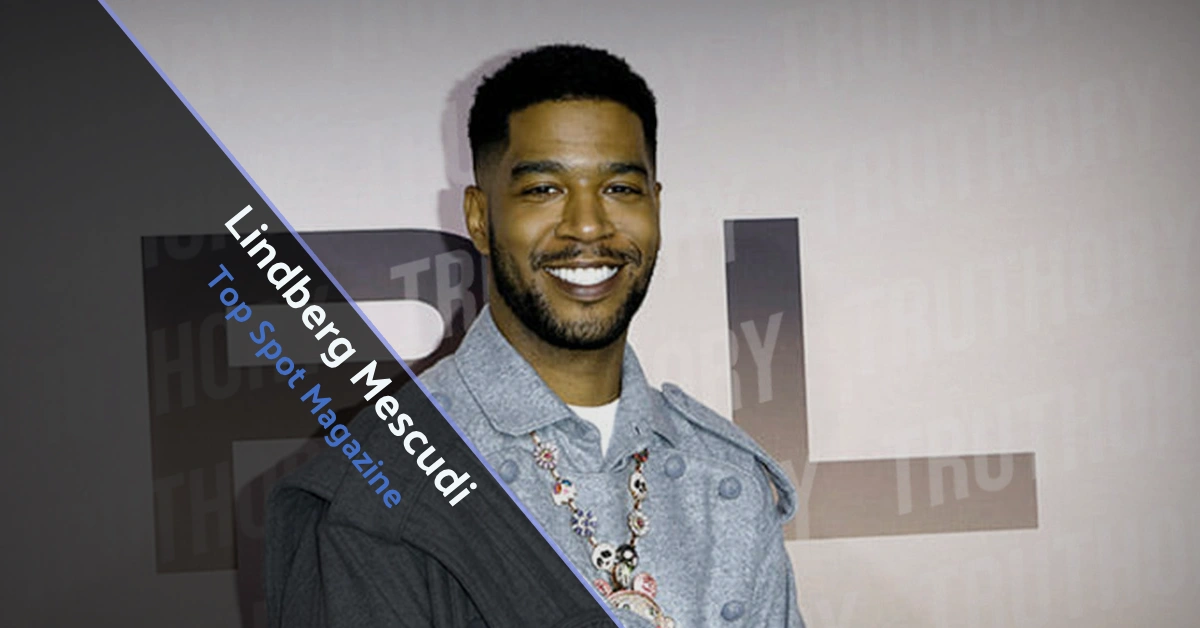You know Kid Cudi—the guy who soundtracked your late-night existential spirals with “Day ‘n’ Nite” and made it cool to talk about depression. But behind every artist who changes the game, there’s usually someone who planted the seeds. For Scott Mescudi, that someone was his father, Lindberg Mescudi. And while Lindberg never saw his son become a cultural icon, his fingerprints are all over Cudi’s music, style, and approach to life. This isn’t just another “celebrity dad” story. It’s about how one man’s values, struggles, and love shaped an entire generation’s soundtrack.
Who Was Lindberg Mescudi?
Lindberg Styles Mescudi was born on June 21, 1927, in Cleveland, Ohio—a city that would later give the world LeBron James and, yes, Kid Cudi himself. His story starts with roots that run deep and wide. His father, Charles Manitow Mescudi, came from Mexico, while his mother, Essie Viola Lawson, was African-American and hailed from Pennsylvania. That multicultural mix wasn’t just a footnote. It shaped everything about how the Mescudi family moved through the world, blending traditions, languages, and perspectives in a way that was ahead of its time.
Growing up as one of six siblings, Lindberg learned early what it meant to hustle, share, and hold your ground. He had three older brothers—Udeal, Cois, and Marvin—plus a younger brother named Charles and a sister, Essie Ella Rannet. Family wasn’t just important; it was survival. And that sense of loyalty, of sticking together no matter what, would become a core value he’d pass down to his own kids.
From the Air Force to the Classroom
When World War II broke out, Lindberg didn’t sit on the sidelines. He joined the U.S. Air Force, proving his courage and commitment to something bigger than himself. Serving during a time when Black and Mexican Americans faced serious discrimination both at home and abroad took guts. But Lindberg did it anyway. After the war ended in 1945, he came back to Cleveland ready to build a life. That’s when he picked up work as a substitute teacher and a house painter—two jobs that might not sound glamorous but required skill, patience, and a serious work ethic.
Teaching kids and transforming homes with a fresh coat of paint might seem worlds apart, but both jobs had something in common: they were about creation and care. Lindberg showed up, did the work, and didn’t complain. That discipline, that quiet strength, became the foundation of who he was as a father. It’s the kind of energy you hear echoed in Kid Cudi’s music—the grind, the resilience, the refusal to quit even when things get dark.
Love, Marriage, and Building a Family
In 1979, Lindberg married Elsie Harriet, a school choir teacher at Roxboro Middle School in Cleveland Heights. The age gap was notable—he was 51, she was 30—but their connection ran deeper than numbers. Elsie brought music into the home, literally. As a choir teacher, she understood the power of melody, harmony, and emotion, all things that would later show up in her son Scott’s work. Lindberg and Elsie built a life together rooted in mutual respect, education, and creativity. They raised four kids: Domingo, Maisha, Dean, and Scott, the youngest, who’d eventually become Kid Cudi.
The Mescudi household wasn’t rich, but it was culturally wealthy. Music filled the rooms. Conversations about identity, heritage, and hard work were daily occurrences. Lindberg didn’t coddle his kids. He expected them to show up, work hard, and respect the world around them. But he also loved them fiercely. That balance—discipline with warmth, toughness with tenderness—left a lasting mark. It’s the kind of fatherhood you don’t fully appreciate until you’re older, when you realize how much those lessons shaped who you became.
The Loss That Changed Everything
In 1995, when Scott was just 11 years old, Lindberg Mescudi passed away from cancer. He was 68. For the Mescudi family, especially young Scott, this was a seismic event. Losing a parent at any age is brutal, but losing your dad during those formative years? That hits different. Scott went from having a guiding force, a protector, a source of strength, to navigating the world without him. The grief was heavy, and it didn’t just go away.
Kid Cudi has been open about how his father’s death impacted his mental health. The sadness, the loneliness, the feeling of being lost—those emotions became central to his music. Instead of bottling it up, Cudi channeled it into his art. Tracks like “Soundtrack 2 My Life” and “Solo Dolo” aren’t just songs. They’re therapy sessions set to beats, raw reflections on what it feels like to miss someone who’s never coming back. That vulnerability, that willingness to be real about pain, is part of what makes Cudi’s music so powerful. And it all traces back to Lindberg.
How Lindberg Shaped Kid Cudi’s Music
If you listen closely to Kid Cudi’s discography, you’ll hear Lindberg Mescudi in every corner. It’s in the melancholy hums, the introspective lyrics, the refusal to conform to what hip-hop “should” sound like. Cudi didn’t follow the blueprint. He created his own lane, blending rap with rock, indie, and electronic influences. That creative courage? That’s his dad’s legacy. Lindberg was a painter and a teacher, someone who understood the value of creating something meaningful, even if the world didn’t always appreciate it right away.
Songs like “Cudi Zone” and “Pursuit of Happiness” explore themes of isolation, self-discovery, and the search for meaning—all topics that became personal after losing his father. Cudi’s music became a safe space for fans dealing with their own mental health struggles, their own losses. He turned his pain into purpose, and millions of people connected with it. That’s not just talent. That’s the kind of emotional intelligence and resilience that gets passed down through generations. Lindberg Mescudi may have never picked up a mic, but his influence echoes through every track his son makes.
Lindberg’s Legacy Lives On
Today, Elsie Mescudi is still alive, living in Cleveland, enjoying retirement. She occasionally shows up at award ceremonies to support her famous son, a proud mom watching her kid shine. In 2022, she attended the Critics’ Choice Awards with Cudi, a moment he proudly shared on social media. That connection, that generational love, started with Lindberg. He built the foundation, and Elsie kept it strong. Together, they raised a son who’d go on to inspire millions.
But the legacy doesn’t stop with Kid Cudi. He’s now a father himself to Vada Wamwene Mescudi, born in 2010. Her name carries meaning—Germanic and Kenyan roots representing strength and purpose. Cudi even launched a sneaker line called “Vadawam 326,” incorporating her birthdate to honor her. It’s the same kind of thoughtful, family-first approach that Lindberg modeled decades earlier. The cycle continues, and the values that Lindberg instilled—hard work, creativity, love—are being passed down to yet another generation.
Why Lindberg’s Story Matters
Lindberg Mescudi wasn’t famous. He didn’t have millions of followers or platinum records. He was a substitute teacher, a house painter, a veteran, and a father. But his impact? Immeasurable. He showed up for his family every single day. He taught his kids the value of discipline, the importance of heritage, and the power of creativity. He loved them hard, even when life got difficult. And when he passed away, he left behind lessons that would shape one of the most influential artists of the 21st century.
In a world obsessed with celebrity, Lindberg’s story reminds us that the real heroes are often the ones we never hear about. The parents who sacrifice, who work multiple jobs, who instill values that last lifetimes. Kid Cudi’s music resonates. It’s honest because it’s rooted in real pain, real loss, real love. And all of that comes back to Lindberg. His story deserves to be told not because of who his son became, but because of who he was—a man of strength, integrity, and enduring influence.
Final Thoughts
Lindberg Mescudi’s life was cut short, but his legacy stretches far beyond his years. From his service in the Air Force to his dedication as a father, he lived with purpose and left behind a family that carries his values forward. Kid Cudi’s music is proof that love, even in its absence, shapes us. It drives us to create, to connect, to keep going when things get tough. So the next time you throw on a Cudi track and feel those moody, introspective vibes, remember: there’s a quiet strength behind it all. That’s Lindberg Mescudi. That’s the man behind the music. And his story is just as powerful as the songs it inspired.

